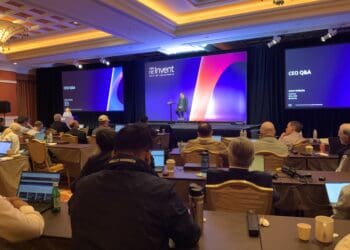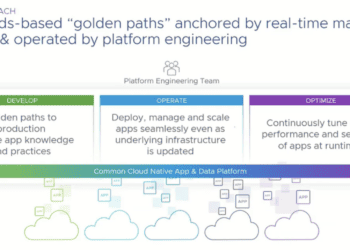Embracing digital transformation isn’t enough
A consistent message from the ‘cloudarotti’ trumpets the end of any company that doesn’t embrace digital transformation. Netflix and Uber represent the ultimate digital disrupters. Blockbuster was too slow to embrace electric delivery. Hailing a cab at home proved too inconvenient vs. summoning a ride via your smartphone. However, embracing digital transformation doesn’t ensure your company or even industry will avoid disruption. A great example is the hotel industry in disruption by home sharing services such as Airbnb.
Defining digital transformation
It’s important to define ‘digital transformation.’ The term means several different things to different people. I’ll establish the simple baseline of removing friction between the consumer of products and services via technology.
On the surface, every modern organization leverages technology for efficiency. However, in digital transformation increased worker efficiency isn’t the only objective. Technology has long driven efficiency. Starting with the advent of the electronic spreadsheet which reduced the business analysis of what ifs from months to hours technology focused on internal operations.
Digital transformation reduces the friction between the consumer and the product or service consumed. Or digital transformation abstracts an analog product or process. Customizing a single pair of shoes before the manufacturing represents an example of digital transformation. The hotel industry has long embraced the various stages of technology to both increase efficiency and transforms their business.
Hilton Worldwide
I spent several years in the early 90’s working for Hilton Hotels Corporation. Even at that time, Hilton was one of the largest hotel operators in the world. Hilton Corp. claimed their technology stack as a primary advantage over the competition. I worked reservations inside the Palmer House Hilton located in Chicago, IL. From my terminal, I could reserve a hotel room at any Hilton in the world. It may seem trivial, but in 1993 it was a major advantage over much of the competition. It allowed Hilton to eventually consolidate all of their North American reservations in a single call center located in TX. It represented the end of my job at the hotel but increased Hilton’s efficiency.
Hilton leveraged its technology to reduce some friction between the consumer and their services but didn’t have the capability or infrastructure to digitally transform the business. At the onset of the internet-age, Hilton and many others in the travel industry were well positioned to take the next step to digital transformation.
The Transformation
The pre-internet reservations system represents a precursor to today’s vast travel sites. While employees of hotels could reserve rooms throughout the world consumers must go through the gate of a hotel employee. Hindsight is 20/20. It’s an obvious connection to connect the backend reservation system to a web frontend simply. However, it was a disruptive change.
In addition to hotel employees impacted by the direct from internet bookings, the hotel industry built a vast ecosystem of partnerships with travel agencies. Travel agents received a commission based on reservations made through the traditional method. Removing friction also resulted in disrupting an entire industry. Hotel sponsored internet travel sites digitally transformed an entire industry.
The underlying product didn’t change. Hotel rooms owned and operated by the hotel industry remained the core of the product. Hotels remained rigid in their core business model. Airbnb took the abstraction of Internet-based reservations but added a new product of shared housing. Airbnb enabled a market that the hotel industry couldn’t predict.
If the taxi industry is the poster child for not embracing digital transformation, the hotel industry is the poster child for embracing digital transformation but not fundamentally changing their business model.
Share This Story, Choose Your Platform!

IT infrastructure subject matter expert (Cloud, Virtualization, Network & Storage) praised for transforming IT operations in verticals that include Pharma, Software, Manufacturing, Government and Financial Services. I’ve lead projects that include consolidation of multiple data centers and combining disparate global IT operations. “Three letter” Federal agencies have called upon me to lead the modernization of critical IT communication platforms.




